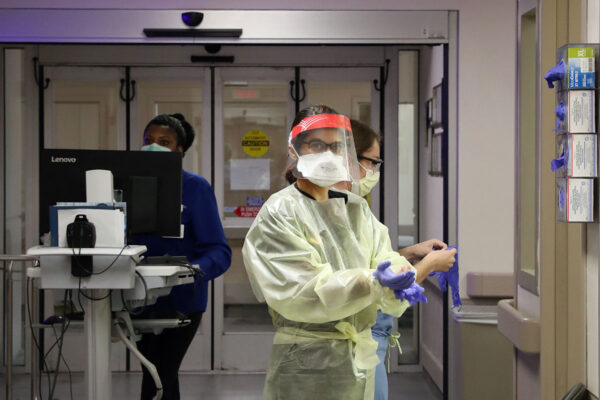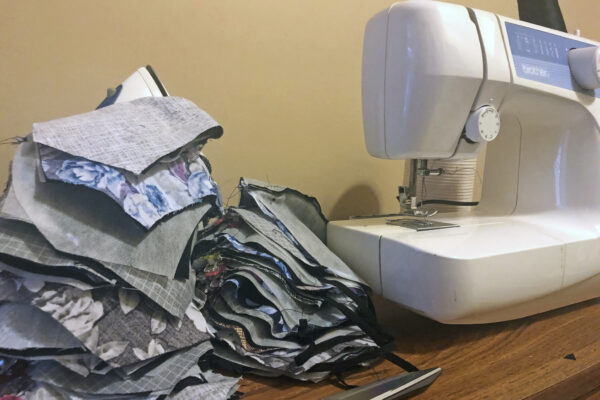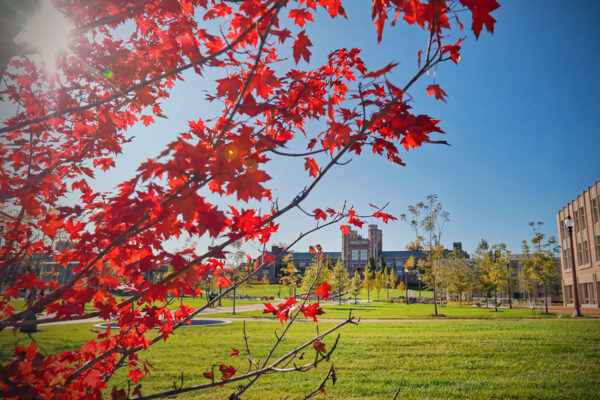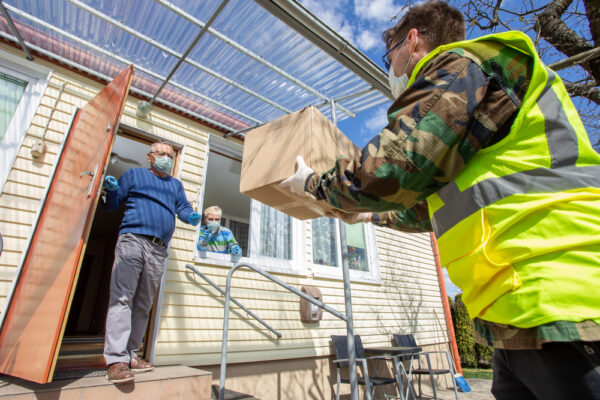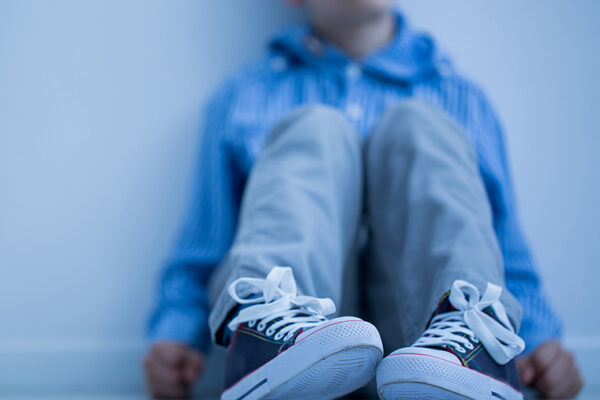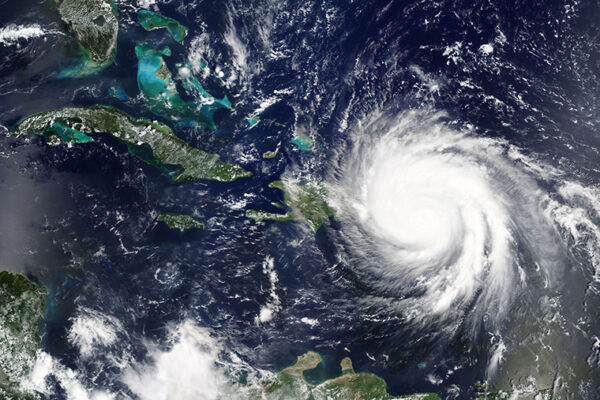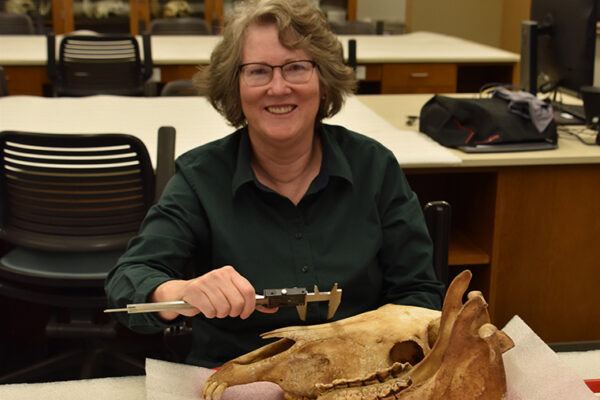Appointment helps strengthen university, Department of Defense ties
The U.S. Department of Defense’s National Security Innovation Network appointed Jake Laktas university program director for Washington University in St. Louis. He will work closely with faculty and students, connecting them with regional industry partners and forging collaborations.
On the front lines in fight against COVID-19
In the COVID-19 wards of Barnes-Jewish Hospital, where Washington University physicians are fighting an exhausting battle against a new, baffling and sometimes lethal disease with the help of the hospital’s nurses, other medical professionals and support staff.
Protests haven’t hurt Hong Kong’s status as global financial center
A new paper by an East Asia and international business expert in the Olin Business School at Washington University in St. Louis finds that Hong Kong’s status as a leading global financial center is secure for multiple reasons, despite prolonged protesting.
China’s government will continue to support it;
Hong Kong’s financial networks possess extraordinary scale and sophistication;
and no viable alternative center has emerged to challenge Hong Kong as the Asia-Pacific leader.
Meyer, a senior lecturer in management, puts forth his arguments in “The Hong Kong protests will not undermine it as a leading global financial centre,” published online in April in Area Development and Policy.
University community members sew masks to help protect St. Louisans
Washington University faculty, staff and students are contributing to a project to create fabric masks for campus members and others in St. Louis to wear when they need to leave their homes during the pandemic.
Washington University begins planning for fall
As the region, nation and world continue to navigate the evolving circumstances of the COVID-19 pandemic, Washington University has begun mobilizing its efforts in preparation for the fall semester, according to Chancellor Andrew D. Martin.
A spring like no other
The spring semester at Washington University was not supposed to end like this — with empty labs and remote classrooms; canceled traditions and idle walkways; scattered friends and electronic colleagues. But the coronavirus disease (COVID-19) changed everything. Here’s a look at the many ways Washington University responded in the first uncertain weeks of a new reality.
The pandemic’s impact on older adults
Moving through a global pandemic has severely impacted every American, but maybe none more than older people. The COVID-19 pandemic has placed a spotlight on the deleterious effects of deep-seated ageism, sexism and racism on older Americans, suggests a new paper from the Harvey A. Friedman Center for Aging at Washington University in St. Louis.
Potential biomarker for autism identified in infants
A biomarker in newborns may signal autism spectrum disorder months or even years before troubling symptoms develop and such diagnoses typically are made. Researchers at Washington University School of Medicine and Stanford University found that some newborns had very low levels of a neuropeptide years before their diagnoses with autism spectrum disorder.
Hurricanes twist evolution in island lizards
A new study from Washington University in St. Louis is the first to demonstrate evolutionary response to hurricanes on a wide geographic scale.
Marshall elected to American Academy of Arts and Sciences
Anthropologist Fiona Marshall in Arts & Sciences was elected a member of the American Academy of Arts and Sciences on April 23.
View More Stories

